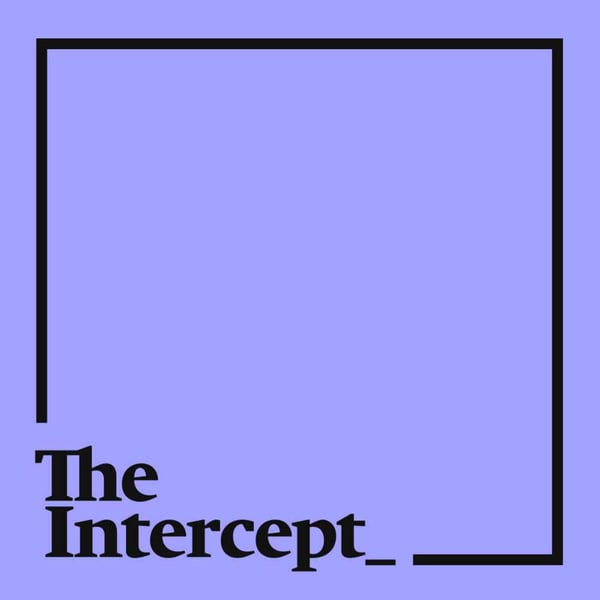China, the Peacemaker?
The Intercept Briefing
The Intercept
4.8 • 6.3K Ratings
🗓️ 3 May 2023
⏱️ 57 minutes
🧾️ Download transcript
Summary
Last week, Ukrainian President Volodymyr Zelenskyy held a long call with Chinese President Xi Jinping, in which Xi appealed for negotiations to begin between Ukraine and Russia. This week on Intercepted, hosts Jeremy Scahill and Murtaza Hussain are joined by Alfred W. McCoy, the Harrington professor of history at the University of Wisconsin-Madison and the author of “To Govern the Globe: World Orders and Catastrophic Change.” As McCoy explains, China’s role in brokering a peace deal could be instrumental. And it also signals that the U.S. government is no longer the most powerful and influential world power in every region of the world, as it once was. McCoy says, “If Putin sat down with Xi Jinping and Zelenskyy and they sign an agreement, Putin couldn’t break that agreement. He can break any other agreement, he’ll break them, he’s done it many times, but that’s one he can’t break.”
If you’d like to support our work, go to theintercept.com/join — your donation, no matter what the amount, makes a real difference.
And if you haven’t already, please subscribe to the show so you can hear it every week. And please go and leave us a rating or a review — it helps people find the show. If you want to give us feedback, email us at [email protected].
Hosted on Acast. See acast.com/privacy for more information.
Transcript
Click on a timestamp to play from that location
| 0:00.0 | This is intercepted. |
| 0:30.0 | Welcome to Intercepted. I'm Jeremy Scayhill. |
| 0:36.0 | And I'm Mataza Hussain. |
| 0:38.0 | Well, Maz, there's a lot of hawkish talk in Washington DC these days, not just the discourse around the war in Ukraine and the confrontation of Vladimir Putin and Russia, but also increasingly about China. |
| 0:52.0 | And on both sides of the official political aisle in Washington DC, there is a sort of emerging consensus that sooner or later the US is going to be in a dramatically escalated reality with China, maybe even a military war. |
| 1:10.0 | And much of the micro focus of this discourse surrounds the fate of Taiwan, but it certainly extends beyond that. |
| 1:18.0 | And if you look at recent history, you see that the US has been on a sort of steady arc toward more focus on China as the primary US adversary in the world. |
| 1:30.0 | And that has brought increased spending on military planning for potential hot conflict or a defensive response to a potential Chinese attempt to take Taiwan by force. |
| 1:42.0 | But Barry, not so deeply underneath this public display that often manifests as sort of chest thumping in Washington DC, lies a much more complex web of social, economic, political, military, geographic battles. |
| 1:59.0 | That are being waged between Washington and Beijing and China has steadily adopted a quite public posture, certainly recently as a world leader, capable of major international diplomacy. |
| 2:15.0 | And as the central player in sort of leading this multi polar battle to challenge US hegemony. |
| 2:25.0 | And today we're going to be speaking with one of the most important historians of the US empire of the politics and history of the Asian continent. |
| 2:35.0 | His name is Alfred McCoy. He is probably very familiar to listeners of this podcast. In fact, when we had him on the show a few years ago, it was by far one of our most popular and most downloaded episodes. |
| 2:47.0 | Alfred McCoy is the Harrington professor of history at the University of Wisconsin, Madison. He's the author of several really important books, most recently in the shadows of the American century, the rise and decline of US global power. |
| 3:01.0 | His newest book is to govern the globe world orders and catastrophic change. Al McCoy's latest article, which was published on Tom dispatch, is titled the rise of China and the fall of the US. |
| 3:14.0 | That's a question mark. |
| 3:15.0 | Tectonic eruptions in Eurasia erode America's global power and in the article, Professor McCoy writes quote, unlike the US China hasn't spent significant effort establishing military bases. |
| 3:28.0 | While Washington still maintains some 750 of them in 80 nations Beijing has just one military base in Djibouti on the east African coast, a signals intercept post on Myanmar's Coco Islands in the Bay of Bengal. |
| 3:43.0 | A compact installation in eastern Tajikistan and half a dozen small outposts in the South China Sea. |
| 3:50.0 | Professor McCoy continues, moreover, while Beijing was focused on building Eurasian infrastructure, Washington was fighting two disastrous wars in Afghanistan and Iraq in a strategically inept bid to dominate the Middle East and its oil reserves. |
| 4:06.0 | Just as the world was beginning to transition away from petroleum to renewable energy. |
| 4:11.0 | In contrast, Beijing has concentrated on the slow, stealthy accretion of investments and influence across Eurasia from the South China Sea to the North Sea. |
... |
Please login to see the full transcript.
Disclaimer: The podcast and artwork embedded on this page are from The Intercept, and are the property of its owner and not affiliated with or endorsed by Tapesearch.
Generated transcripts are the property of The Intercept and are distributed freely under the Fair Use doctrine. Transcripts generated by Tapesearch are not guaranteed to be accurate.
Copyright © Tapesearch 2025.

